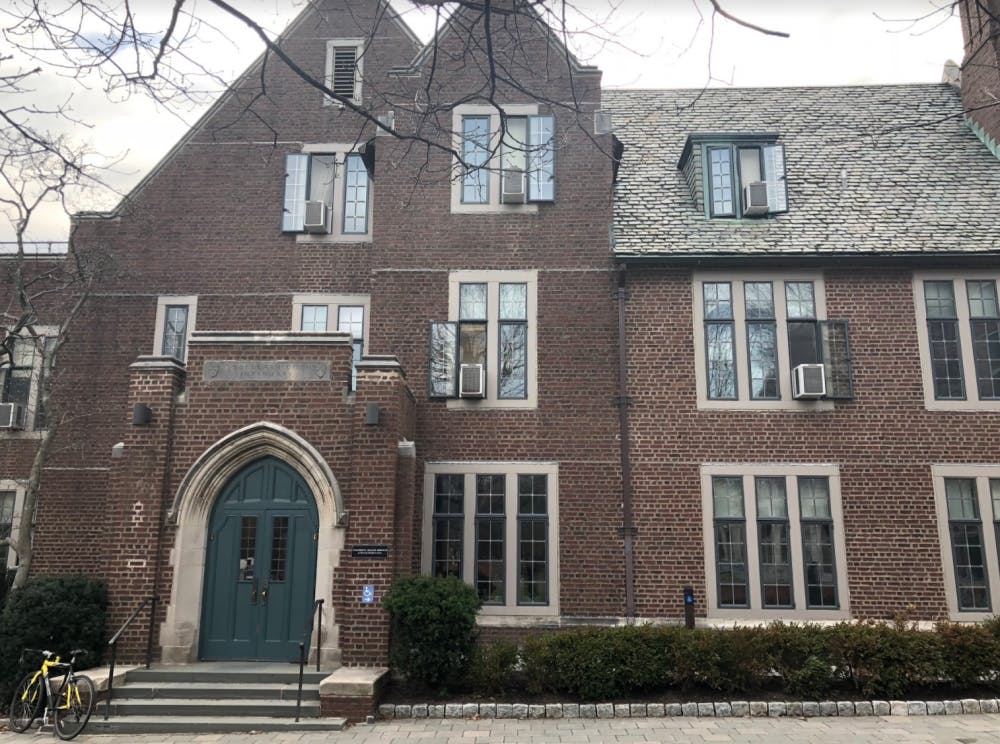A recent study from the American College Health Association found that 41.9 percent of undergraduates have “felt so depressed within the past twelve months that it was difficult to function.” The Princeton Mental Health Initiative has dedicated a week to raise awareness of their plight.
The organization designated the week of Feb. 18 as “Mental Health Week,” inviting service dogs, producing theater productions, and hosting a mental health-focused exhibit.
According to Princeton Mental Health Initiative board member Richard Yang ’22, Mental Health Week was created in an effort to “promote awareness about mental health issues.”
“Because Princeton is academically rigorous and is a different social environment, many students are prone to [developing] mental illnesses without realizing, and more importantly, [without] seeking help,” Yang said.
Some events — such as a therapy dog study break in Frist Campus Center — aimed to provide students with a non-academic outlet to relax and take time away from their work. Other events focused on raising awareness of depression, suicidality, and other mental health concerns.
On Monday, Feb. 18, for example, the organization hosted the IN THEIR SHOES™ traveling exhibit by Attitudes In Reverse — a mental health advocacy group — in the Frist East TV Room. The exhibit consists of 269 pairs of shoes belonging to New Jersey children and young adults who had committed suicide.
According to the organization’s website, the exhibit “helps to increase understanding, empathy and kindness towards those who might be struggling in silence and encourage them to seek help.”
Following the exhibit, Arch & Arrow Literary Magazine and Butler College co-hosted an open-mic night on Wednesday, Feb. 20, where students shared prose, poetry, and music related to mental health.
In one of the keynote events from the week, from Thursday, Feb. 21, to Saturday, Feb. 24, students staged performances of the “Me Too Monologues” for the fifth year in a row.
Written and performed by University students, the monologues shared personal experiences with topics such as sexual assault, suicide, and eating disorders.
Each performance included a “talkback” after the show to encourage dialogue surrounding mental health on campus.
Undergraduate Student Government president-emeritus Rachel Yee ’19 praised the Me Too Monologues as “incredible and powerful programming.”

“[The Monologues] help us to take a step back and have some perspective, especially when the beginning of the semester can be hard,” she said.
Yang echoed her sentiments. He believes that such events can help discussion of mental illness to become more open.
“Increasing the dialogue surrounding mental health will help destigmatize mental illnesses. I hope that people won't be afraid to seek help when they need it. There is nothing to be ashamed about because balancing academics, activities, and life at Princeton is tough,” he said.
Overall, Yang believes that demonstrations of solidarity and awareness will be beneficial for students experiencing mental health concerns.
“Demonstrating that depression is a widespread issue across campus and at other universities will help people recognize that they can always seek help from their peers or advisors,” Yang said.
“I hope that students realize that there are supportive students and staff to help them get through their mental health issues,“ he continued.
Mental Health Week began on Monday, Feb. 18, and ended on Saturday, Feb. 24.









